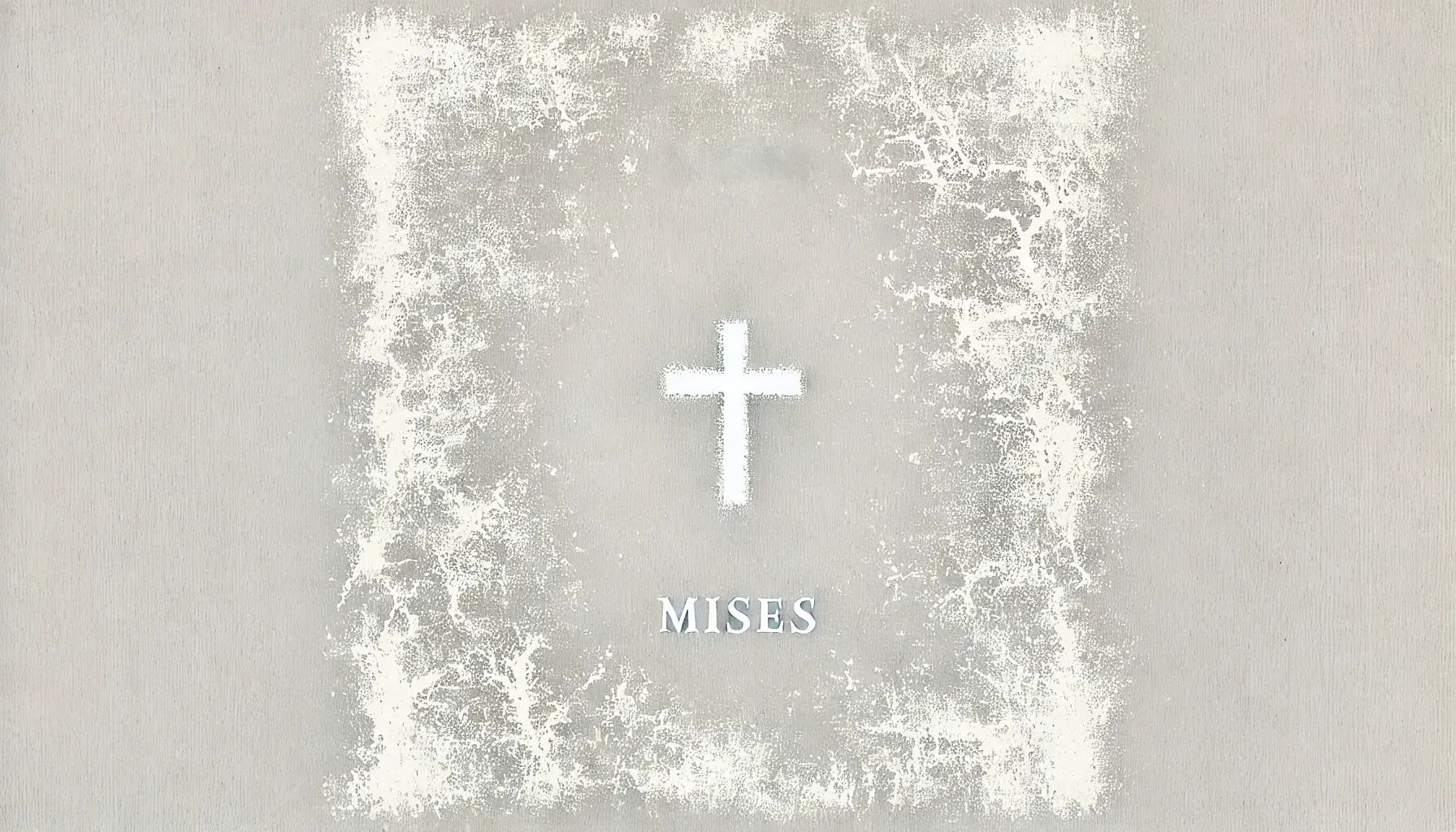Mises Caucus Is Libertarianism’s White Supremacist Betrayal

The Mises Caucus, now the dominant faction within the Libertarian Party, claims to stand for liberty, decentralization, and free markets. However, beneath this surface lies a convoluted ideology that betrays the very principles of libertarianism. What masquerades as a movement for individual freedom is, in truth, a faction rooted in Evangelical White Christian Libertarian Anarcho-Capitalist Supremacy—an unwieldy but accurate descriptor of its contradictions and hypocrisies.
By fusing Christian nationalism, Rothbardian distortions, and white supremacy, the Mises Caucus has transformed libertarianism into a vehicle for exclusion, authoritarianism, and betrayal. This article examines their movement, its religious underpinnings, and the role of key figures like Michael Heise, Aaron Harris, and Dave Smith, who have steered this faction into dangerous territory.
The Two Founders’ Religious Agenda
The Libertarian Christian Institute (LCI) plays a significant role in shaping the ideology of the Mises Caucus, particularly through its ties to Michael Heise and Aaron Harris, two of its founders. While the caucus publicly brands itself as a secular libertarian movement, these leaders promote a vision of libertarianism that is inseparable from Christian evangelical doctrine.
Michael Heise: The Preacher-Leader
- Michael Heise, the de facto leader of the Mises Caucus, has openly stated that Christianity should lead libertarianism. In one podcast appearance, he paraphrased a biblical verse, saying, “Taste and see that the Lord is good,” in reference to himself and his movement—a telling display of self-aggrandizement and religious overreach.
- Heise’s rhetoric and leadership style mirror those of a preacher, blending Christian theology with libertarian language to build a cult-like following.
Aaron Harris: A Christian Libertarian Strategist
- Aaron Harris, another founding figure, is closely tied to the Libertarian Christian Institute and its mission to align libertarianism with evangelical Christianity.
- Harris has worked behind the scenes to shape the Mises Caucus’s vision, promoting Christian cultural dominance as a foundational pillar of their political strategy.
Christian Nationalism in Disguise
While Heise and Harris avoid overtly branding the Mises Caucus as a religious movement, their ties to the Libertarian Christian Institute and their theocratic rhetoric suggest a deliberate strategy: to mask their Christian nationalist agenda behind the libertarian facade. This deceit allows them to attract secular libertarians while advancing a vision that prioritizes White Christian supremacy.
Dave Smith Betrays His Jewish Heritage, Or Lied About It
At the forefront of the Mises Caucus’s public appeal is Dave Smith, a comedian-turned-political commentator who has gone from expressing pride in his Jewish heritage to aligning with a movement that tolerates, and at times promotes, antisemitism.
A. Silence in the Face of Antisemitism
- Smith has publicly identified as the grandson of Holocaust survivors, a fact that should position him as a vocal critic of antisemitism. Instead, he has repeatedly failed to defend Jewish Americans or himself when faced with bigotry within his circles.
- In one notable incident, his “friend” Jake Shields posted a cartoon of a grotesque Jewish caricature eating Uncle Sam—a clear display of antisemitism. Smith reframed the discussion as a First Amendment issue, defending Shields’ right to free speech rather than condemning the hateful rhetoric.
B. A Passive Conversion to Christian Libertarianism
- While Smith has not explicitly declared himself a Christian, his alignment with the Mises Caucus and its evangelical overtones suggests a passive adoption of their worldview.
- By failing to challenge the theocratic tendencies of the movement, Smith has become a token figure—a Jew who provides cover for a faction that actively marginalizes Jewish voices.
C. A Legacy of Betrayal
Smith’s refusal to confront antisemitism and his alignment with a white Christian nationalist movement represent a profound betrayal—not only of his heritage but also of the principles of liberty and inclusivity that libertarianism purports to uphold.
The White Supremacist Agenda of The Mises Caucus
The Mises Caucus’s embrace of White Christian supremacy is central to its betrayal of libertarianism. This is evident in several key aspects of their movement:
A. The False Trinity: Peace = Liberty = Order
- Borrowed from their allies in The Liberty Movement, the slogan “Peace = Liberty = Order” reflects a false equivalency designed to impose a hierarchical worldview.
- This trinity-like framework mirrors Christian theological structures, prioritizing order and conformity over genuine liberty and individual freedom.
B. Removal of Anti-Bigotry Protections
- The caucus has gone so far as to remove language addressing bigotry from its foundational documents, signaling a tacit acceptance of racism, antisemitism, and exclusionary ideologies.
- This move aligns the caucus more closely with white nationalist movements, which often use libertarian rhetoric to mask their true intentions.
C. A Cult of Purity and Control
- Like many supremacist movements, the Mises Caucus enforces ideological purity tests, discouraging dissent and demanding conformity.
- Members are pressured to embrace not only the caucus’s distorted libertarianism but also its cultural and religious supremacy.
The Mises Caucus’ Betrayal of Libertarian Principles
The Mises Caucus is not just a betrayal of libertarianism—it is a direct threat to its survival as a political philosophy. Here’s how their movement undermines true liberty:
A. Misuse of Libertarian Language
- The caucus uses libertarian rhetoric—anti-statism, decentralization, and free markets—to attract followers while advancing a vision that is fundamentally authoritarian.
- Their distorted interpretation of anarcho-capitalism and their embrace of cryptocurrency, which lacks intrinsic value, betray the principles of sound money and market stability championed by figures like Murray Rothbard.
B. Exclusion and Supremacy
- By promoting White Christian cultural dominance and marginalizing minority voices, the Mises Caucus undermines the inclusivity and intellectual diversity required for a healthy political movement.
- Their embrace of bigotry and rejection of secular governance reveal a movement more focused on control than liberty.
C. A Cult, Not a Party
- The caucus operates more like a religious cult than a political faction, prioritizing loyalty to its leaders and ideology over meaningful engagement with the complexities of governance.
Reclaiming Libertarianism Will Only Be For The Brave
The Mises Caucus is not a movement for liberty—it is a right-wing Marxist cult that has betrayed the principles of libertarianism in favor of White Christian supremacy and authoritarian control. Led by figures like Michael Heise and Aaron Harris, and enabled by Dave Smith, this faction has co-opted the Libertarian Party to advance a dangerous and exclusionary agenda.
For libertarianism as a philosophy to survive, its adherents must reject the Mises Caucus’ ideology, expose their contradictions, and rebuild a vision of liberty that is inclusive, intellectually honest, and grounded in genuine freedom.
The stakes could not be higher.
The time to act is now.
